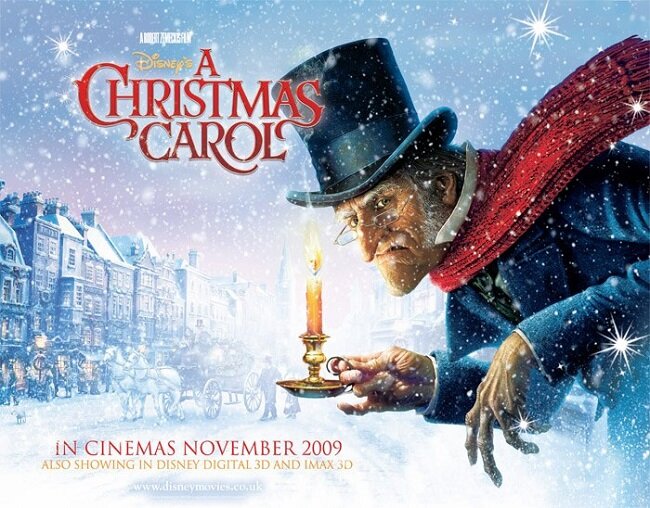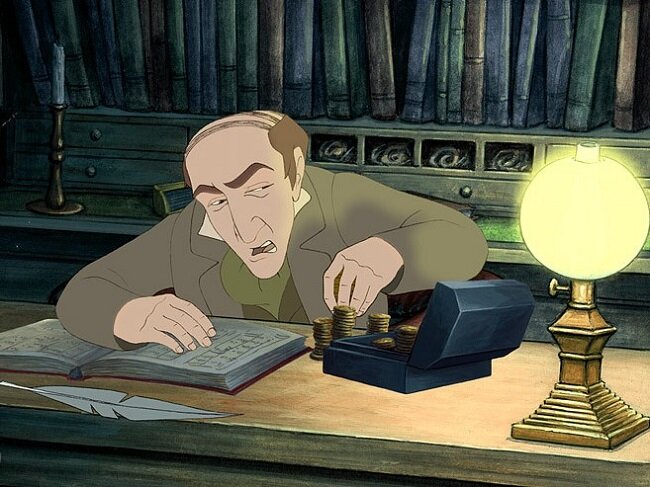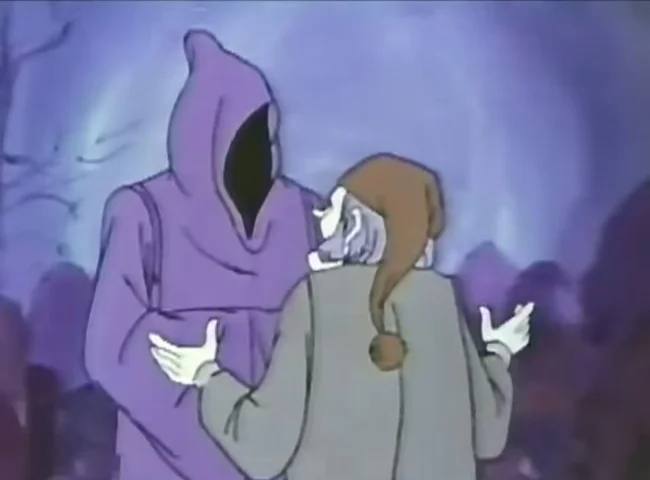A Christmas Carol (1954)
This 1954 adaptation of Charles Dickens’ A Christmas Carol is a distinctly studio bound US television production. It was in fact the fourth episode of an anthology variety show called A Shower of Stars. Originally filmed and broadcast in colour, only black and white prints now survive. The production boasts a script by noted American playwright Maxwell Anderson. Due to the 48 minute running time (without commercial breaks) the narrative is heavily abridged and often it is only the story’s most basic themes which are dramatically interpreted. It stars Fredric March who plays Scrooge as a cool and indifferent man, rather than the usual shrill old miser. However, despite his presence his performance cannot save the production. Most of the other cast members are far from accomplished and at times their acting borders on the amateur.
Music and song plays an integral part of this version. Although not a full blown musical, there is an itinerant group of carol singers that seem to grow in size, who regularly regale the viewers with expository songs. Plus many characters sing at some point. Others do not. It’s all rather inconsistent and confusing. The songs are mainly designed to underpin the story's themes. At times they are used as a means to bridge scenes or expedite the story without an excess of dialogue. Unfortunately the songs, also written by Maxwell Anderson, are weak and superfluous. Some are actually annoying. However, the orchestral score and incidental music by the great Bernard Herrmann is striking. At times it has a very eerie and foreboding quality, with its use of strings and choir vocalisation. But alas, there’s far too little of it.
There are very few original ideas featured in this adaptation. The Spirit of Christmas Past and The Spirit of Christmas Present look like Scrooge’s lost love Belle and nephew respectively. This is because they are played by the same actors. I initially thought this was a visual conceit used for narrative reasons but it is more than likely due to the budgetary restrictions. The screenplay attempts to focus on Scrooge’s failed relationship as the main cause of his abhorrent nature. Unfortunately, it dwells a little too long upon the matter. There’s an excruciating song that Belle and Scrooge sing at Fezziwig’s Christmas party. The Spirit of Christmas Yet to Come is not even shown. Scrooge merely “looks within himself” and has a revelatory vision of a graveyard with both his and Tiny Tim’s names upon the tombstones. This proves sufficient shock therapy to reform Scrooge’s nature.
Despite the presence of quality actors such as Fredric March and Basil Rathbone who plays Marley’s Ghost, this is a rather poor adaptation which is actually quite hard to sit through. Rathbone, covered in cobwebs, rambles through the poorly condensed dialogue. “I come out of torment. I come to help your soul avoid eternal misery”. Well, not watching this particular adaptation is possibly a good place to start. The contract TV actors chew the low budget scenery and incessantly assail you with tedious and never ending songs. And then to utterly mitigate the underlying theme of poverty, Scrooge invites himself to Bob Cratchit’s meagre Christmas Dinner. It is as illogical as it is risible. Hence, there is precious little to recommend about this version of A Christmas Carol. I would only suggest watching it if you are a completionist or a consummate fan of the two main leads. Casual viewers should seek out a more competent adaptation.

















